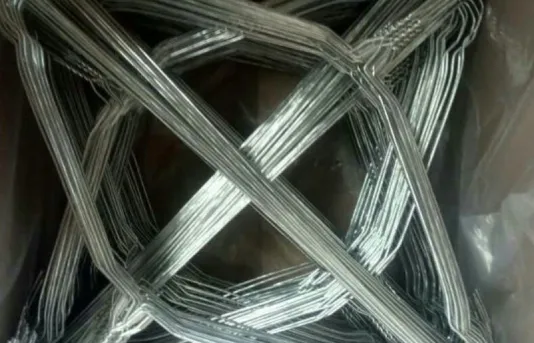-
 Phone:
Phone: -
 Email:
Email:

Impact of Rebar Tie Wire on Corrosion Resistance in Construction Projects
Does Rebar Tie Wire Rust? Understanding Corrosion in Construction Materials
When it comes to construction, ensuring the durability and strength of materials is paramount. One common element used in the reinforcement of concrete structures is rebar tie wire. This wire plays an essential role in connecting rebar, thereby enhancing the structural integrity of various constructions. However, a question often arises does rebar tie wire rust? Understanding this concept requires a look into the materials used, environmental factors, and methods of prevention.
Rebar tie wire is typically made from low carbon steel, which is known for its malleability and strength. While these properties make it ideal for construction, they also predispose it to corrosion when exposed to moisture and air. Rusting is an oxidation process that occurs when iron, or iron alloys like steel, react with oxygen and water. The presence of these elements can lead to the formation of iron oxide, commonly known as rust. Therefore, the susceptibility of rebar tie wire to rusting is largely dependent on its environment.
In outdoor construction settings, especially in coastal or humid regions, the likelihood of rust formation increases significantly. High levels of moisture in the air, combined with the presence of salt or contaminants, can accelerate the corrosion process. This is particularly concerning for structures that are exposed to harsh weather conditions over long periods. Rust not only compromises the aesthetic quality of the wire and the reinforcing bars it secures but can also diminish the overall strength of the concrete structure.
does rebar tie wire rust

To mitigate the risk of rust, several preventive measures can be employed. One effective approach is the use of galvanized rebar tie wire. Galvanization is a process that involves coating the steel wire with a layer of zinc. This protective layer serves as a barrier, preventing moisture and oxygen from reaching the underlying steel and thereby inhibiting rust formation. Even if the zinc coating gets scratched or damaged, the underlying steel is still protected due to the sacrificial nature of zinc, which corrodes before the steel does.
Another alternative is the use of epoxy-coated tie wire. This involves applying a polymer coating over the wire, providing an additional layer of protection against environmental factors that promote rust. Epoxy coatings are particularly beneficial in areas where exposure to corrosive substances, such as de-icing agents used on roads, is common.
Moreover, regular inspections and maintenance can play a critical role in preventing significant rust damage. By regularly checking for signs of corrosion, construction managers can take corrective measures early on, such as replacing compromised wire or reapplying protective coatings.
In summary, rebar tie wire, primarily made of low carbon steel, is indeed susceptible to rusting when exposed to conducive environmental conditions. However, with modern advancements like galvanized and epoxy-coated options, along with diligent maintenance practices, the risks associated with corrosion can be significantly reduced. Understanding the potential for rust and taking proactive steps can ensure the longevity and safety of concrete structures, ultimately leading to more durable and reliable construction outcomes. In the ever-evolving field of construction, staying informed about the materials used and their properties is essential for achieving lasting results.
-
Wire Mesh for Every Need: A Practical SolutionNewsJul.25,2025
-
Steel Fences: Durable, Secure, and Stylish OptionsNewsJul.25,2025
-
Roll Top Fencing: A Smart Solution for Safety and SecurityNewsJul.25,2025
-
Cattle Farm Fencing Solutions for Maximum SecurityNewsJul.25,2025
-
Affordable Iron Binding Wire SolutionsNewsJul.25,2025
-
Affordable Galvanized Wire SolutionsNewsJul.25,2025
-
Wire Hanger Recycling IdeasNewsJul.25,2025








